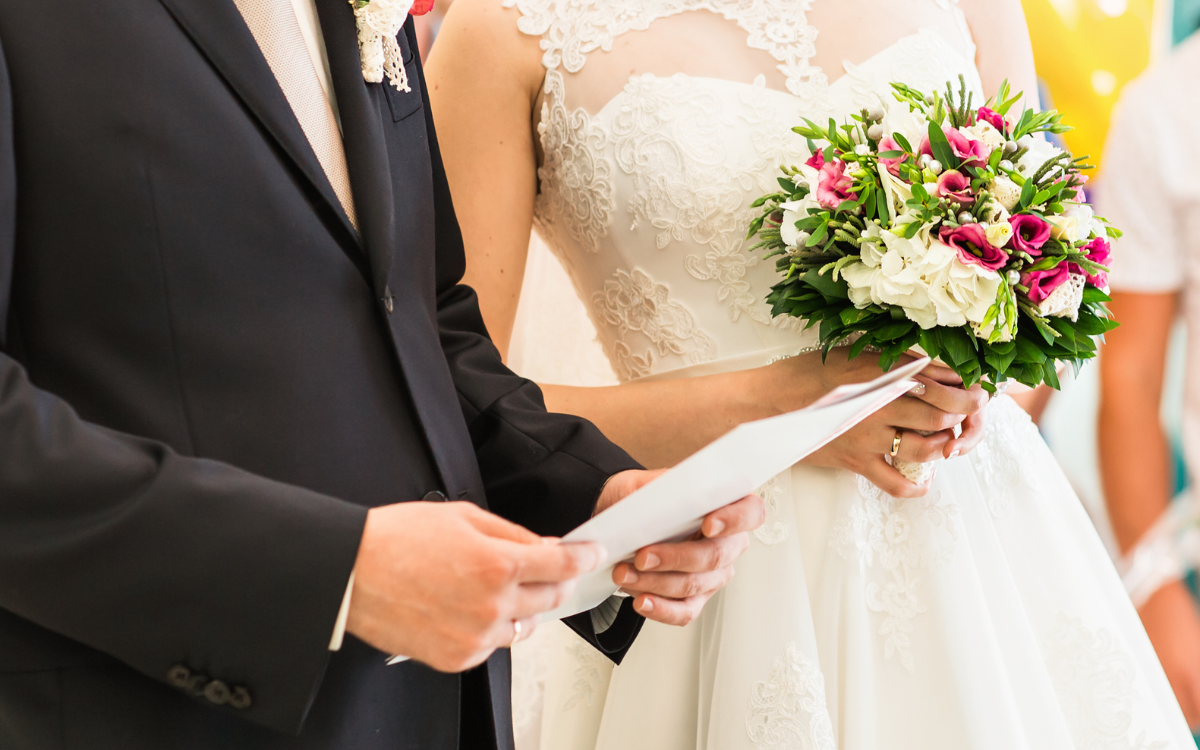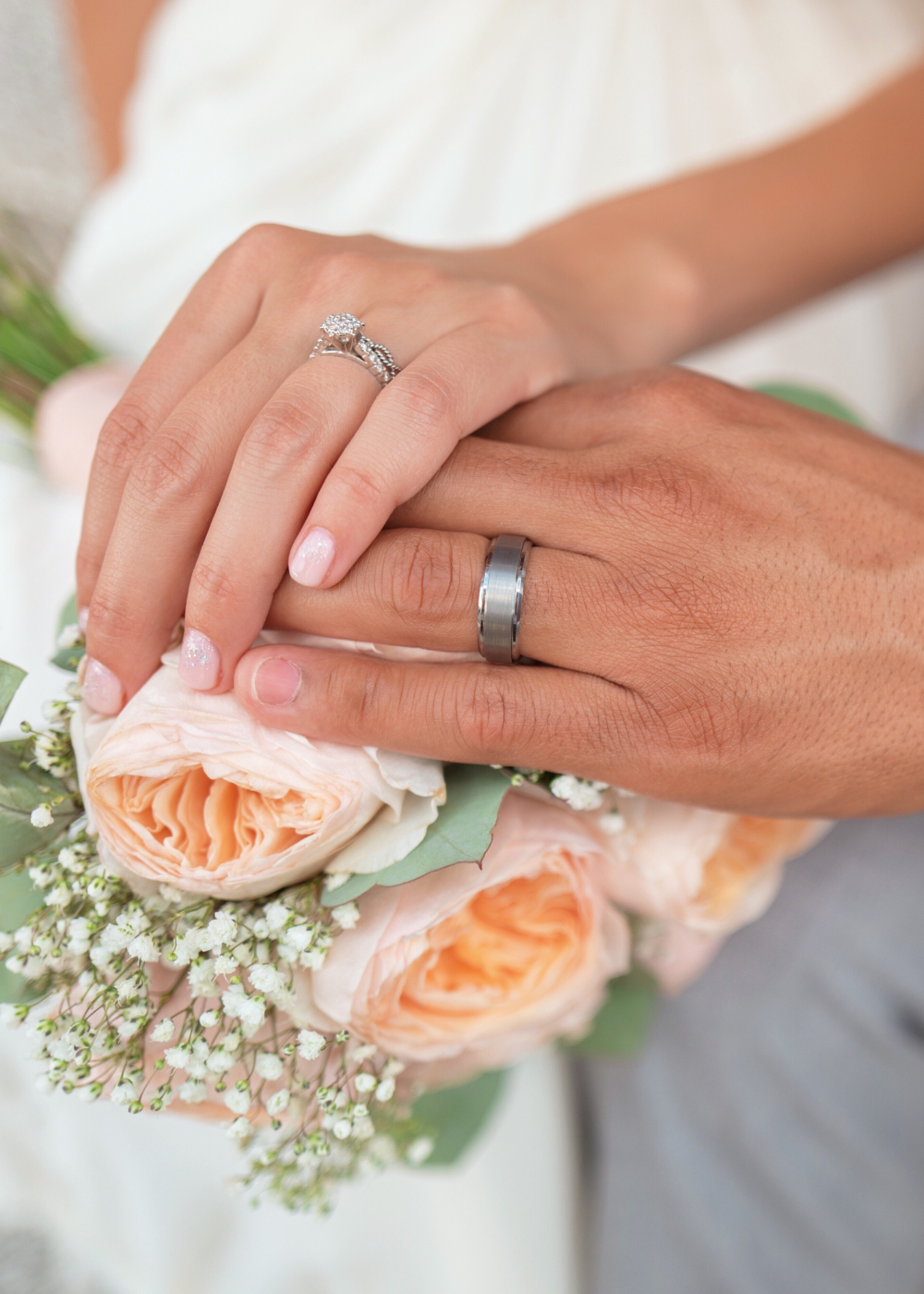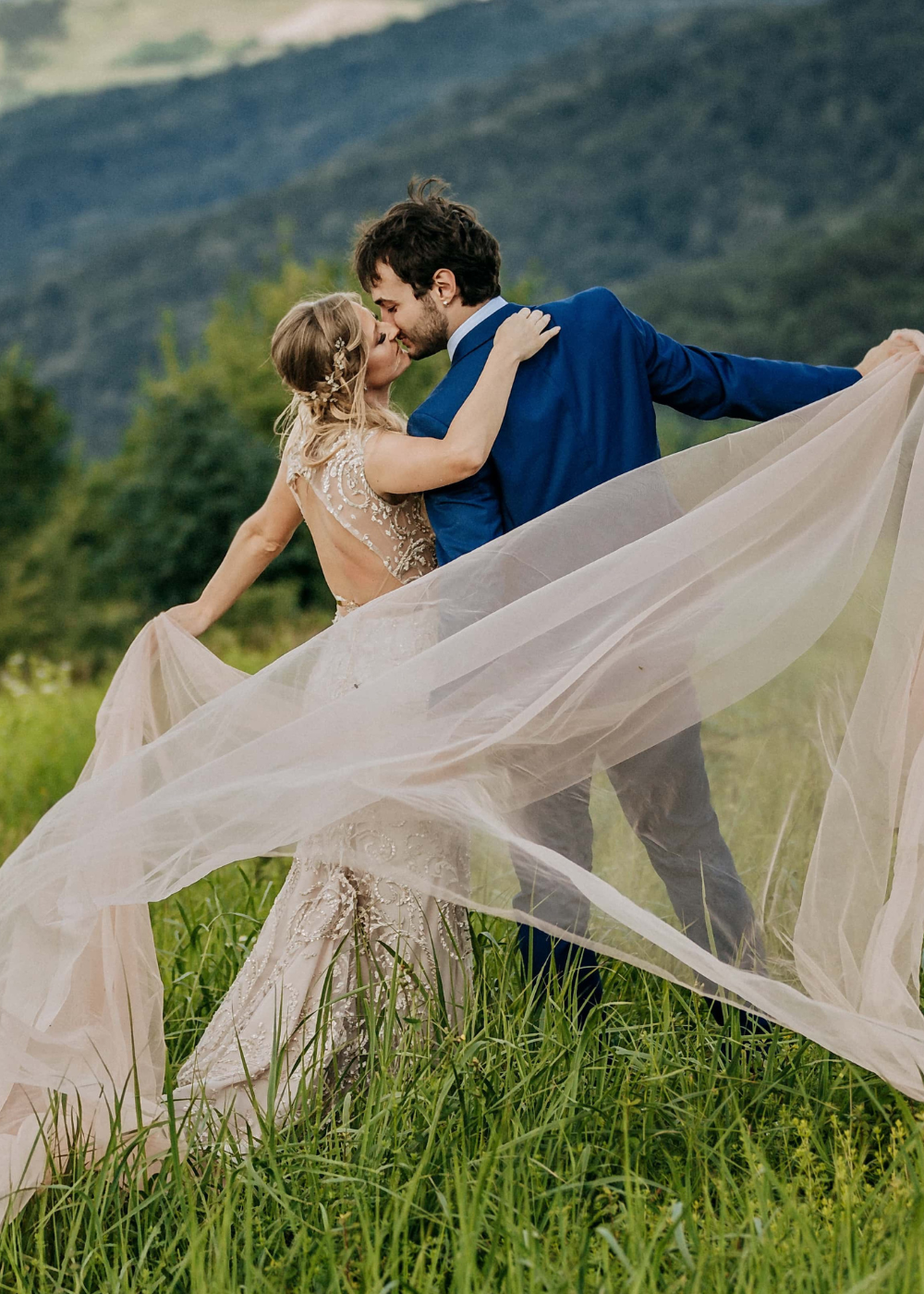Can you have a wedding ceremony without a marriage license? Getting married excites any couple.
With so many decisions to make, the process can also feel overwhelming. Many couples wonder whether they need a marriage license for their wedding ceremony.
This blog post will provide a comprehensive guide to understanding marriage license requirements.
We’ll cover everything you need to know to plan a beautiful, meaningful wedding day without the legal paperwork.
From small backyard weddings to large church ceremonies, you have options for celebrating your love even if you’re not ready for the official documentation.
Read on to learn the details so you can create a special day focused on your commitment, not bureaucratic necessities.
With the right information, you can confidently plan a wedding tailored to your unique situation and priorities.
Is a Marriage License Required for a Wedding Ceremony?

Many couples are surprised to learn that a legal marriage license is not required to have a wedding ceremony. You can absolutely host a beautiful event to celebrate your relationship without filing paperwork with the state. The key distinction is that the ceremony would be symbolic rather than legally recognized. You and your partner would not obtain the legal status of being married in the eyes of the government. However, that does not mean you cannot have a meaningful ceremony centered around declaring your commitment to each other in front of friends and family.
What Is a Commitment Ceremony?
A commitment ceremony is a wedding-like event that allows couples to make vows and celebrate their relationship without obtaining a legal marriage. These ceremonies have increased in popularity among couples who are not yet ready for marriage or who cannot legally marry. The format often looks similar to a traditional wedding, such as exchanging vows and rings.
However, the officiant makes clear the ceremony does not create a lawful marriage. Commitment ceremonies provide a way for couples to share their love and intentions with close family and friends. They offer the chance to think deeply about the promises that will strengthen their partnership. Couples from all walks of life now use commitment ceremonies to honor their bond while tailoring the event to their unique circumstances.
Benefits of Having a Wedding Without a Marriage License
Getting married without a license allows flexibility and customization. Couples can design their ideal ceremony and make it as traditional or non-traditional as they wish. The event can focus on celebrating love rather than legalities. An unofficial wedding also allows more freedom in choosing where and how to tie the knot. Venue options expand beyond just places that meet legal requirements. The ceremony format can incorporate cultural traditions important to the couple.
Planning may feel more relaxed without needing to coordinate legal documents and officiants. Couples who cannot legally wed can still experience their dream wedding. For some, avoiding the red tape of licenses and paperwork can simplify the process. An unofficial wedding permits creativity and personalization for couples seeking a unique, meaningful experience.

Drawbacks and Risks of Not Getting Legally Married
Though unofficial weddings offer flexibility, they lack legal protections. Without a marriage license, couples don’t gain rights like filing joint taxes or being covered by a spouse’s insurance. Legal responsibilities around debt, assets, and estate planning remain unclear. Children from the relationship may not have inheritance rights. In case of separation, there is no legal process for division of shared property or spousal support. Immigration benefits also do not apply.
Partners can be denied hospital visitation rights reserved for spouses. Some couples use contracts to establish rights, but these may be hard to enforce. Unmarried couples don’t qualify for Social Security or veterans benefits. Not being legally recognized can complicate major life events like buying property, having kids, or medical decisions if a partner is incapacitated. While unofficial weddings allow personalization, the legal uncertainty can be a drawback.
Steps for Planning a Wedding Ceremony Without a License
Planning an unofficial wedding still takes thought and preparation.
- First, review your state’s laws to understand requirements around officiants and witnesses.
- Decide if you’ll write your own vows or use traditional ones.
- Select a meaningful venue that fits your budget and style.
- Create a guest list, send invitations, and handle RSVPs.
- Hire vendors like a photographer, florist, and caterer as desired.
- Pick attire that reflects your values.
- Design a ceremony agenda with readings, music, and rituals.
- Write heartfelt remarks if you’ll exchange them.
- Share your plans with family to set expectations.
- Inform guests of any attire requests or COVID protocols.
Though not legally binding, treat the event with care to celebrate your commitment.
How to Make Your Ceremony Meaningful Without Legal Marriage
A wedding without a marriage license can still be meaningful if you infuse it with personal details. Select readings that resonate and write your own vows. Incorporate cultural traditions important to your heritage. Feature food, décor, and music that represent your relationship.
Share stories about how you met and fell in love. Highlight your values and hopes for the future. Write letters to exchange privately before the ceremony. Engage guests by having them sign a “guestbook quilt” or advice cards for the couple. Focus on celebrating your commitment, not the lack of legal status. The ceremony can represent the start of your life together rather than just a change in marital status.
Options for Low-Cost Ceremonies Without a License
You don’t need to spend a fortune on a meaningful ceremony without legal marriage. Outdoor spaces in parks or nature areas offer beautiful backdrops for free. Ask a friend to officiate rather than hiring someone.
Make your own decorations and centerpieces. Shop discount or secondhand stores for attire. Use an online playlist or borrow speakers for music.
Prepare your own food and cake to serve guests. Opt for a brunch or afternoon tea instead of a plated dinner. Choose a weekday date for lower venue rates. Keep the guest list small and intimate.
Focus your budget on photography to capture moments. Splurge selectively on what matters most, like your outfit or flowers. With creativity and commitment, you can have a special day together that celebrates your relationship, not just your legal status.

Advice for Telling Guests You Won’t Have a Legal Marriage
Letting loved ones know your ceremony won’t make your marriage legal can be awkward. Approach conversations with empathy. Explain your reasons sincerely without judgment. Send a personal note or talk in person. Avoid mass emails or last minute surprises. Address concerns about your commitment or future plans. Make it clear your relationship is solid. Share how much it would mean for them to attend and celebrate with you.
Offer to discuss it further. Provide reassurance you’re ready for this step. Focus on your shared love and life together, not legal status. Remind them the event marks an important milestone and your commitment remains real, even without a license. With understanding and support, your guests can embrace this less traditional but still meaningful ceremony.
How to Handle Gifts and Registries Without a License
Some couples feel awkward about gifts if their wedding isn’t legally recognized. However, your loved ones want to celebrate your commitment and new chapter.
Focus on making the occasion meaningful, not materialistic. Explain that gifts are optional, as their presence alone is present enough. If they insist, suggest donations to charity in your honor. Or create a small registry for upgrades to basics like cookware or bedding. Keep it low-key and affordable.
Emphasize sharing the day rather than receiving. Or have a post-ceremony party where guests can give tokens of affection like homemade foods or framed photos. Most will understand you do not expect lavish gifts without legal nuptials. Let sincerity and gratitude, not awkwardness, guide gift conversations.
Tips for Later Obtaining a Marriage License After Your Ceremony
Getting legally married after your unofficial ceremony is simpler than it seems.
First, contact your county clerk’s office to learn requirements. Generally you’ll need ID, proof of age, and a small fee. Some states mandate waiting periods between applying and receiving the license, so factor those in.
Book an appointment with your officiant to sign documents making it official. This brief meeting can feel anticlimactic after your full celebration, so commemorate it by exchanging vows again. Celebrate your legal union privately with a special meal or cake just for two.
Obtain certified copies of your marriage certificate to update accounts and records. While not every couple opts for legal steps, taking them later simplifies taxes, insurance, and more. So don’t worry – you can have your dream ceremony on your own terms now, then make it legally binding later.
People Also Asked (FAQs)
Can you get married without a marriage license USA?
No, you cannot legally get married anywhere in the USA without a marriage license. All states require a marriage license in order to legally recognize a marriage.
Can I get married in Las Vegas without a marriage license?
No, you cannot legally get married in Las Vegas or anywhere in Nevada without a marriage license issued by the county clerk’s office. A license is required.
Can you get married in Nevada without a marriage license?
No, you need a marriage license to legally marry in the state of Nevada, including Las Vegas. Attempting to marry without a license will result in an invalid marriage.
Can you get married but not legally in Vegas?
Conclusion
You can have a wedding ceremony without a marriage license, but you must obtain a marriage license first to legally get married anywhere in the United States, including Las Vegas. The license is what makes the marriage legally valid. So while you can have a ceremony, you cannot have a legally recognized marriage without the proper paperwork.

